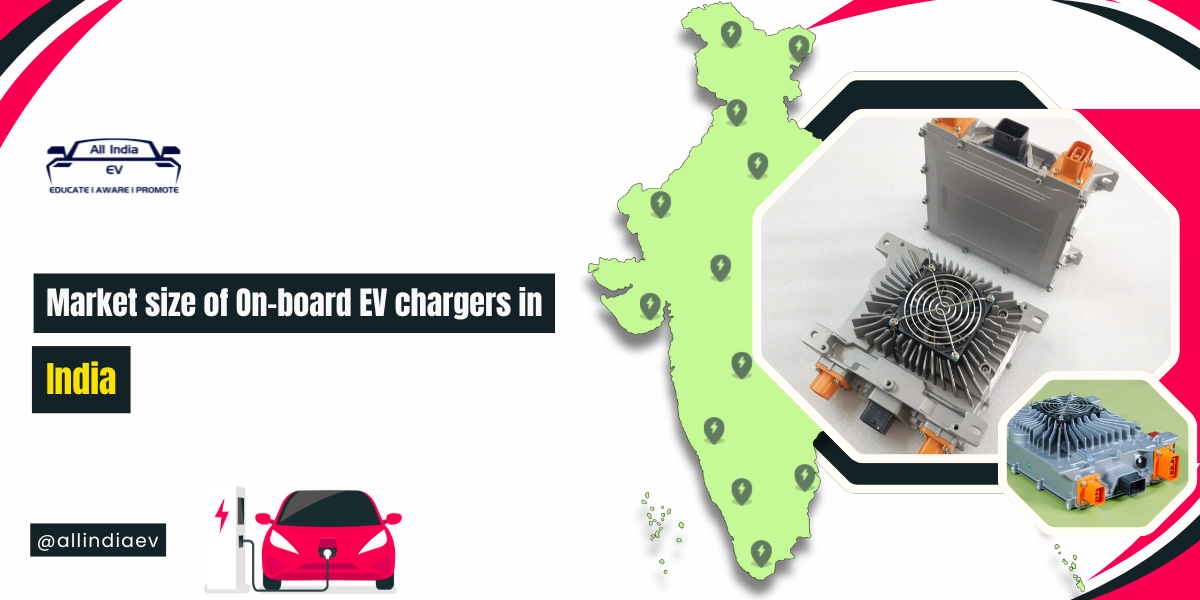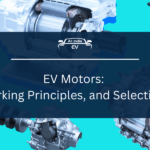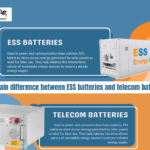
How an On-board Charger Powers Your Electric Vehicle
The charger has a direct impact on the speed and efficiency of the charging. During the process, there are four essentials: the charging cable, the charging station, an on-board charger, and the battery of the EV. The on-board charger is the least known, whereas the rest are well-acclaimed. These devices are used to convert AC power coming from the charging station into DC power, which is suitable for EV batteries. In this article, we will explain the benefits, working, types, and other very important reasons of on-board chargers in an electric vehicle charging ecosystem.
The Power Behind Electric Vehicles: On-board Chargers
These on-board chargers act as the critical link that connects electric vehicles to their respective powers. In simple words, they behave like charging equipment, connecting electric vehicles to charging points for the facilitation of energy transfer and recharging of the vehicle’s batteries. There are two types of chargers: on-board chargers and charging station chargers, which could be further divided into AC and DC.
Onboard chargers are electronic devices used in the conversion of AC power from different sources into DC power to recharge an EV battery pack. These sources range from a residential outlet up to public charging stations. OBCs not only simplify charging but also perform the function of a communicating bridge between the charging station and vehicle controllers. They ensure the proper amount of current or power is delivered to the vehicle and also check the compatibility with the right charging standard.
Today, electric vehicle users can have a number of charging standards available to them across the globe. Often, each of these standards can be peculiar to a region with their particular versions in North America, Europe, and China. The electric vehicle onboard charger is considered one of the great merits for EV owners since they support scalability and flexibility. These chargers are capable of charging and discharging electric vehicles at any charging power outlet anywhere within an area.
Onboard chargers automatically adjust to regional charging standards. Using information provided by either the EVSE controller or the vehicle controller, these chargers transition smoothly through multiple standards without performance loss. Onboard systems also maintain accurate voltage matching in order to protect the electric vehicle battery. EV manufacturers design the on-board charging systems with much care for specific voltage requirements at both the battery and the grid.
Moreover, with EV ranges at stake, manufacturers are into minimizing the on-board charger’s weight as much as possible. It is for this reason that on-board chargers, because of permanent mounting, should have minimized weights. Another key role an onboard charger is able to serve is in bidirectional charging methods. For this reason, it can convert DC power from the high-voltage battery pack to AC power, supporting grid power, AC loads, and even the charging of other electric vehicles.
On-board chargers (OBCs) offer numerous benefits for electric vehicle (EV) users:
- Precise Voltage and Current Control: OBCs allow users to regulate the current and voltage supplied to the EV battery, ensuring optimal battery health and longevity.
- Flexible Charging Options: OBCs provide both persistent current and steady voltage charging modes, offering flexibility and ease of use.
- Efficient and Fast Charging: OBCs maintain a constant current during the initial charging phase, maximizing efficiency and speed. When the battery voltage reaches a specific level, they automatically switch to stable voltage charging, further optimizing the charging process. This intelligent charging strategy is a key advantage of OBCs.
- Wide Compatibility: OBCs can utilize readily available AC power sources, allowing EV users to plug their vehicles into virtually any outlet, from home outlets to public charging stations.
Insides of an On-board Charger
The onboard chargers operate on either AC or DC. In the case of high-power AC input, the rectifier inside the OBC converts it into DC power with improved PFC. The PFC circuits reduce harmonic distortion in the supply current; therefore, there is an improvement in power quality and efficiency.
OBCs generate a current waveform similar to that of a standard sine wave. The waveform is responsible for making the OBC use one phase, two phases, or three phases of alternating current. A DC-to-DC converter in the OBC is highly essential to isolate the power grid from the HV DC bus and the HV DC bus from the LV DC bus in such a way that both protective means are ensured.
In the second stage of the OBC process, the output voltage is transformed into a square wave at an output of 700 V. The square wave drives a transformer that in turn supplies the electric vehicle battery with the required DC voltage. In order to monitor and control the entire charging system, EV users often utilize a CAN bus. Isolation of the CAN bus, so as to provide additional safety and reliability, can be done using digital isolators along with integrated DC/DC power converters. Finally, the OBC system feeds the necessary voltage to the electric vehicle battery for its proper and efficient charging.
Types of Onboard Chargers: Single-Phase and Three-Phase
OBCs, depending on the number of phases and output power, can be further divided into two categories: single-phase and three-phase. Single-phase chargers are within a range of 7.2 to 11 kilowatts of power. In the instance of a three-phase charger, the power achieved is 22 kilowatts. The type of OBC used in an electric vehicle will have a direct effect on the recharge time for the vehicle—three-phase typically being faster.
Key Considerations for On-board Charger Installation
When installing an on-board charger (OBC), several critical factors must be taken into account:
- Charging Time: The desired charging speed will influence the choice of OBC (single-phase or three-phase) and the required power capacity.
- Environmental Conditions: Adequate temperature control, cooling, and efficient space utilization are essential for optimal OBC performance.
- Battery Capacity: The OBC must be compatible with the maximum power rating of the electric vehicle’s battery pack.
- Power Quality: Power factor correction (PFC) and rectification of the AC signal are crucial for ensuring efficient and reliable charging.
- Safety: Protective isolation between the power source and the electric vehicle battery is essential to prevent electrical hazards.
- Compatibility: The OBC must be compatible with both the AC input voltage and the required output voltage for the electric vehicle battery.
- Communication: Effective communication between the electric vehicle and the electric vehicle supply equipment (EVSE) is vital for seamless charging operations.
Overcoming the Challenges of On-board Chargers
The OBCs impose several design and environmental challenges on the manufacturers. The designers have to plan and design very efficient power systems within limited space. This is considered challenging for the OBCs. In this regard, the efficiency of OBC needs to be optimized by the manufacturer in order to shorten the charging time.
It is expected that this segment will also have to function in very unfavorable environmental conditions: very high and low temperatures, strong vibrations, and electrical noise. Accordingly, the respective designs the engineers will develop for this OBC power system will have to be robust enough to survive such conditions and provide long-term reliability.
Heat generation during charging is always a challenge to minimize. An efficient OBC design generates less waste heat, minimizing the needs of a thermal management system. However, up to date, adding heat sinks to OBC designs can increase size and weight, negatively affecting vehicle efficiency.
There are also grid power factor regulations that have to be followed when charging via OBCs. Boost converters are often used for PFC by designers because they can solve many of the AC input challenges and provide a high-voltage DC signal to the DC-DC converter stage in the charging system.









